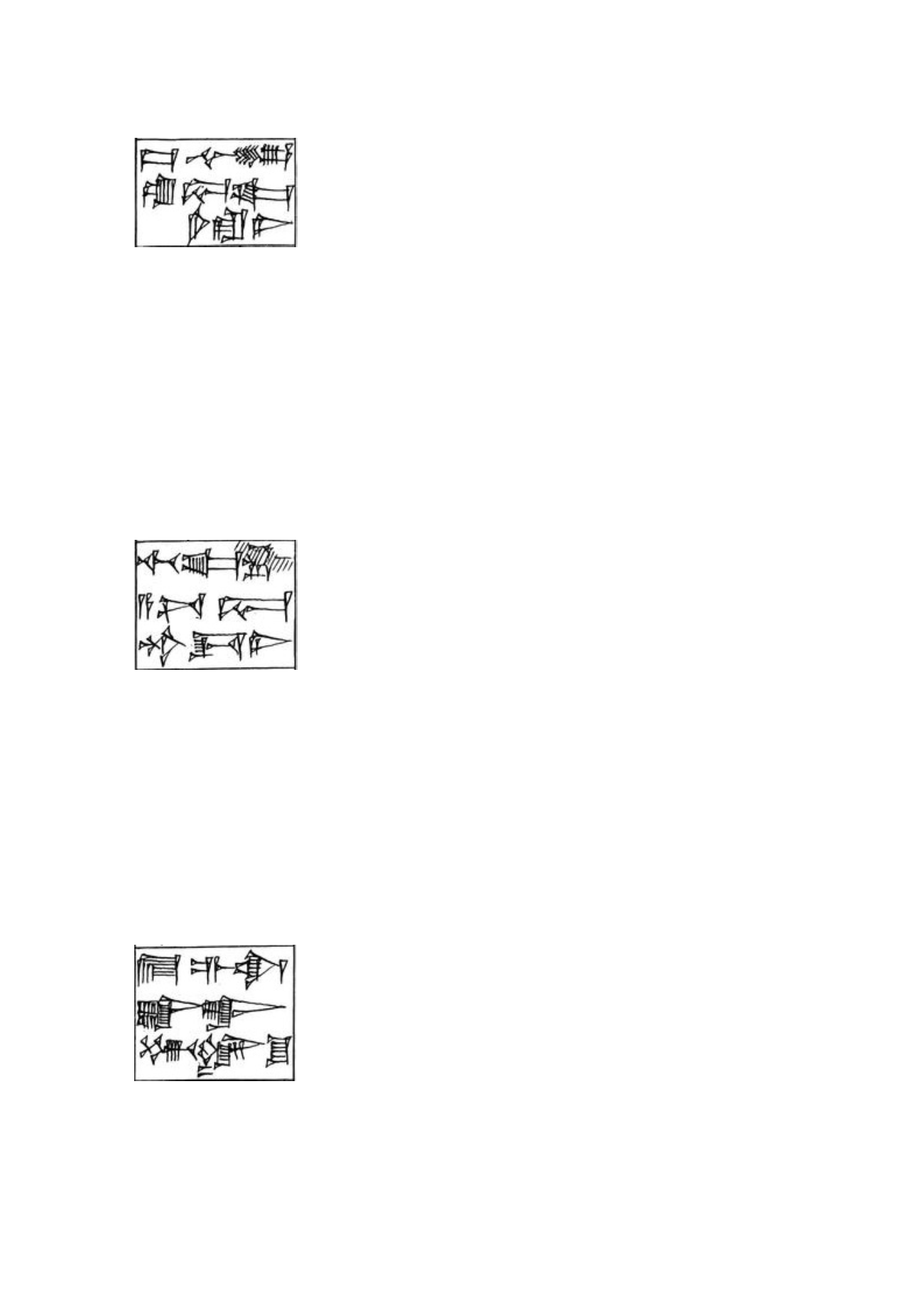

431
Gudea di Lagash – La costruzione del tempio di Ninjirsu - Cilindro B
B XIV.4 – 1134
jiš.pan tir mes.gin
7
gu
3
jar.ra.ni[
jiš
pan [tir mes].ak.gin
7
gu
3
jar.a].ani
il suo arco, che come una foresta di alberi-mes tintinna;
“sein Bogen, der wie ein Wald von mesi-Bäumen rauscht” (GSG2.72n2)
(jiš)
pan (pana, ban) : “bow (pa, 'branch', + na
4
, 'pebble, stone')” (SL); “arc” (PLS.116); “bow” (PSD2.199)
[tir mes].ak.gin
7
: “wie ein Wald von mesi-Bäumen”, con marker del genitivo (GSG1.98) e dell’equativo. Al
posto del genitivo, potrebbe anche trattarsi di un’apposizione (GSG2.36)
(jiš)
tir [ŠE.NUN&NUN]]: “forest, grove, thicket (ti, 'arrows' + ur
3
, 'beams, rafters'; early example of asyndetic
hendiadys)” (SL); “forêt, bosquet, hallier” (PLS.141); “mud; forest, wood” (PSD2.254); mes “hackberry
tree in the elm family” (SL); cfr.
(jiš)
mes “bois” (PLS.100); “a tree” (PSD2.168), accadico
m
!
su
“a type of
tree”. Il singolare mes è qui usato in senso collettivo (GSG2.50)
[…].ani : “sein …, der rauscht” (GSG1.134); gu
3
jar.a è participio del verbo composto gu
3
jar, per il quale
vedi A XXII.8; B VIII.1
B XIV.5 – 1135
ti šur
2
me
3
.a nim.gin
7
jir
2
.da.ni[ti šur
2
me
3
.a nim.gin
7
jir
2
.eda].ani
la sua feroce freccia, che in battaglia come un fulmine folgora;
“sein schrecklicher Pfeil, der in der Schlacht wie ein Blitz dahinfährt” (GSG2.74)
ti : “arrow” (SL; PSD2.253); “flèche” (PLS.141)
šur
2
: “feroce”; cfr. A X.20
me
3
.a : “in der Schlacht”, con marker del locativo (GSG1.107); vedi B VII.9
nim.gin
7
jir
2
.eda : “der wie ein Blitz dahinfährt”, dove jir
2
.eda è participio (GSG1.145; GSG2.74) del verbo
jir
2
: “to stab; to fulgurate, lighten, flash” (SL); “fulgurer” (PLS.66); propriamente, nim vale “ highland;
east; morning” (SL); “hautes-terres; est, levant” (PLS.111). Cfr. anche il verbo composto nim…jir
2
: “to
lighten; to flash ('upper country' + 'lightning flash')” (SL); “éclairer, briller”” (PLS.66); e il sostantivo
composto nim.jir
2
“”éclair” (PLS.111); nim.gin
7
.jir
2
“tp flash like lightning” (PSD2.193)
B XIV.6 – 1136
e
2
.mar.uru
5
ug pirij
muš.huš.še3
[e
2
.mar.uru
5
ug pirij
muš.huš.še3
la sua faretra, che (come) un leopardo (?) e un leone contro un drago
“seinen Köcher, an dem ein
Gepard
(und) ein Löwe gegen eine wilde Schlange die Zunge herausstecken”
(GSG2.72)
e
2
.mar.uru
5
[GUR
8
]: “arrow quiver ('house' + 'to immerse' + 'high, deep')” (SL); “carquois” (PLS.44);
“quiver” (PSD2.59); accadico
išpatu
; cfr. A VI.20
















